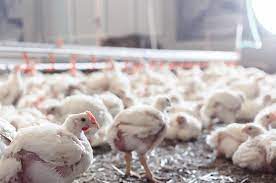Price of 90-day-old chicken in Ghana

There are lots of things to consider when raising chickens. The age is one important factor to consider because it helps you to know how to cater and feed the chicken and what to give at that time. Aside a day old chicken, there is also 90-day-old chicken.
90-day-old chickens are approximately three months old. They’ve gone through the chick stage and are now considered juvenile birds. They are still young, which means there is still more growing time ahead of them. But they are not quite as fragile as a day old chicken.
Why people might prefer 90-day-old chickens over younger birds
- They have had more time to develop and are less likely to succumb to illnesses or other health problems.
- They are easy to raise.
- They are a bit more self-sufficient.
- While day-old chicks can be expensive, 90-day-old chicken birds are often more affordable.
Prices for 90-day-old chicken in Ghana
The price for a 90-day-old chicken in Ghana ranges between GHS 30 to GHS 50. The price can be higher or lower depending on their factors which includes feed prices, transport costs, labor costs, market demand, and the availability of imports.
Factors that affect the price of 90-day-old chicken in Ghana
1. Feed Prices
Chicken feed is made up of a variety of ingredients, including corn, soybean meal, and wheat. These ingredients are subject to market increase, which can impact the overall cost of chicken feed. When the cost of feed goes up, chicken farmers must either absorb the cost or pass it on to consumers in the form of higher prices.
2. Transport Costs
Chicken farms are often located in rural areas, which can make it more expensive to transport chickens to urban centers where they are sold. The cost of fuel can also impact the cost of transportation which will affect the final price of the chicken.
3. Labor Costs
Labor costs can include everything from paying workers to clean coops and care for chickens to hiring veterinarians to monitor the health of the flock. When labor costs go up, farmers may need to raise the price of their chickens to cover these expenses.
4. Market Demand
When demand is high, farmers can charge more for their chickens. When demand is low, farmers may need to lower their prices in order to sell their chickens before they reach grow.
5. Availability of Imports
- Advertisement -
When imported chicken is readily available, consumers may go for the cheaper option, which can lead to a decrease in demand for locally raised chickens. This can force local farmers to lower their prices in order to remain competitive.
Conclusion
The prices for 90-day-old chicken in Ghana can vary depending on several factors. The best way to know the price of a specific chicken is to make enquiries and compare prices from different sellers. Purchasing from a reputable seller is important to ensure that you get high-quality chicken at a fair price.


